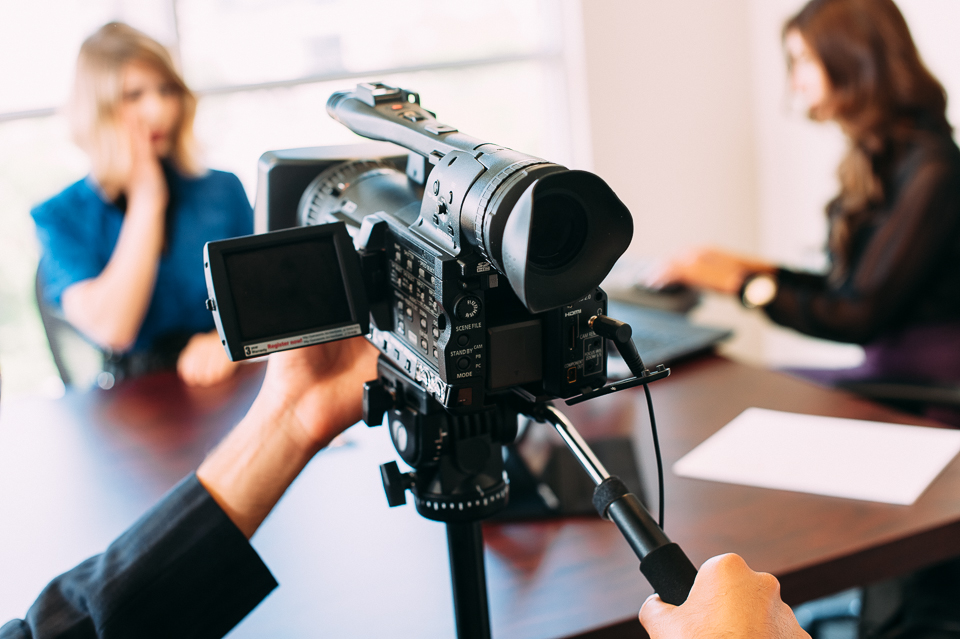The Function of Lawful Videography in Depositions and Trials
Lawful videography has actually arised as a necessary device in both depositions and tests, offering a diverse method to documenting witness testaments. As lawful experts progressively recognize its value, it motivates a much deeper assessment of exactly how these visual documents can affect juror understandings and trial end results.
Value of Legal Videography
Legal videography plays a crucial duty in the paperwork and presentation of depositions and tests. This customized area integrates technical abilities with legal knowledge to develop a trusted record of proceedings that can dramatically affect case end results. The visual aspect of lawful videography enhances the understanding of witness testament, enabling jurors and judges to observe not just the spoken words yet likewise the disposition, feelings, and body language of the witnesses.

The importance of lawful videography prolongs beyond the court room; it likewise plays an important role in maintaining evidence for future recommendation, whether for allures or further legal action. As such, its assimilation into the legal procedure is important for guaranteeing a reasonable and precise representation of the realities, eventually contributing to the quest of justice.

Refine of Legal Videography
While capturing the nuances of depositions and tests, the procedure of legal videography includes numerous crucial actions that make certain top quality, precise recordings. Originally, a professional legal videographer prepares by evaluating the situation products and recognizing the specific requirements of the deposition or test. This prep work consists of acquainting themselves with the individuals and the context, which aids in capturing relevant details.
On the day of the recording, the videographer establishes the needed devices, which normally consists of high-def electronic cameras, microphones, and correct lights. Making certain optimum angles and audio top quality is vital, as it straight impacts the efficiency of the recording. The videographer connects with attorneys and participants to establish protocols, guaranteeing that everyone understands the recording procedure.
During the deposition or trial, the videographer carefully tapes the proceedings, paying attention to both spoken and non-verbal cues. legal videography. This consists of catching the disposition and responses of witnesses and lawyers. After the session wraps up, the videographer might modify the footage for quality and compliance with legal standards, creating a last item that precisely mirrors the process for future recommendation and usage in legal contexts
Advantages in Depositions
The incorporation of videography in depositions offers countless advantages that enhance the general procedure of collecting proof. One key benefit is the capability to capture witness testaments with aesthetic and auditory integrity, offering a more exact depiction of the witness's attitude, tone, and body language. This multidimensional technique allows lawyers and juries to examine trustworthiness better than typical written transcripts alone.
Additionally, videographed depositions act as an effective device for protecting testimony. Ought to a witness become unavailable for test, their recorded deposition can be played in court, ensuring that their proof remains available and pertinent. This aspect dramatically minimizes the risk of losing critical information that might influence situation end results.
In addition, using legal videography promotes far better prep work for lawyers. Examining video footage allows legal groups to analyze and fine-tune their techniques, determining staminas and weak points in their situations. This primary advantage can result in more engaging presentations in court.
Last but not least, videography enhances the overall expertise of the deposition process, instilling self-confidence in customers concerning the thoroughness of their legal depiction. By leveraging innovation, lawyers can considerably boost the efficiency of depositions.
Influence On Tests
In numerous tests, the assimilation of videography can substantially influence the discussion of proof and the court's understanding. Legal videography catches witness statements and critical proof in a dynamic layout, my website enabling jurors to involve with the product on several degrees. This aesthetic element enhances the narration facet of a test, providing context and psychological resonance that standard text-based proof might lack.
Additionally, video recordings can offer as powerful devices for impeachment during interrogation. When disparities occur between a witness's prior declarations and their court room testimony, video clip evidence gives an objective referral that can sway jurors' point of views. This immediacy and clarity can bolster the reputation of a celebration's narrative while simultaneously undermining opposing disagreements.
In addition, the usage of videography can assist simplify intricate info, making it extra easily accessible to jurors that may have a hard time to grasp elaborate information provided solely with spoken testament. By incorporating visuals with acoustic details, legal videography can boost retention and understanding, eventually influencing the court's decision-making procedure. For that reason, the effect of videography in tests expands past simple looks; it plays an essential duty you can try this out fit the legal landscape and results.
Future Trends in Legal Videography
As we look toward the future of legal videography, a number of arising trends assure to reshape its function within the court. One considerable trend is the combination of expert system (AI) in video evaluation and editing - legal videography. AI can streamline the process of identifying key minutes in tape-recorded depositions, permitting lawyers to rapidly access pertinent material, thereby boosting performance in case preparation
Additionally, the rise of virtual fact (VR) and boosted reality (AR) modern technologies is expected to change how jurors experience evidence. By immersing jurors in a simulated setting, these innovations can provide a much more profound understanding of complicated situations, resulting in even more informed deliberations.

Additionally, the raising demand for remote depositions, accelerated by the COVID-19 pandemic, will likely proceed. Lawful videographers will need to adapt to new software application and platforms to guarantee this contact form high-quality recordings in online settings.
Last but not least, the growing focus on data safety will certainly require more stringent procedures for saving and sharing video proof. As the lawful landscape evolves, lawful videographers should stay abreast of these patterns to preserve their importance and efficiency in the judicial process.

Final Thought
In recap, legal videography offers a crucial function in the judicial process, improving the integrity of depositions and trials. By catching the subtleties of witness testaments, this tool not only maintains vital evidence but additionally help in offering info successfully to jurors. The relevance of aesthetic paperwork in reviewing integrity and helping with interrogation can not be overemphasized. As innovation proceeds to develop, lawful videography is positioned to additional change its duty within the legal landscape.